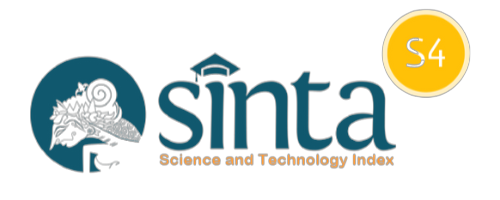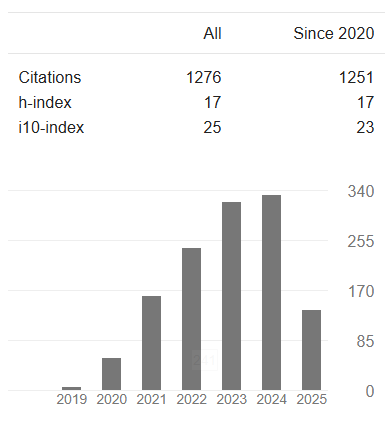Intention of Generation Z to Visit Halal Tourism Destination in West Java
DOI:
https://doi.org/10.14421/EkBis.2024.8.2.2285Keywords:
Generation Z, Intention, Halal Tourism, West JavaAbstract
Indonesia has great potential in the tourism sector, including halal tourism, such as in West Java. Technological developments and digitalization permeating various sectors can influence people's interest in traveling, including Generation Z. This study aims to analyze the factors affecting Generation Z's desire to visit halal tourism destinations in West Java. This study investigates the factors according to the Theory of Perceived Behavior or TPB (subjective norms, attitude towards behavior, and perceived behavioral control), spiritual considerations (religiosity), and digital promotion (electronic word-of-mouth). Furthermore, the study incorporates halal literacy as a moderating variable, assessing its impact on the TPB's influence on tourist intention to visit halal tourism destinations. This study employed an online questionnaire, collecting data from 219 respondents. The gathered data was subsequently analyzed using the Structural Equation Modeling-Partial Least Square (PLS-SEM). The findings reveal that perceived behavioral control, electronic world-of-mouth, and halal literacy have a significant and positive effect on Generation Z's interest in visiting halal tourism destinations in West Java. However, subjective norms, attitudes toward behavior, and religiosity did not have a significant effect. Moreover, halal literacy also failed to moderate the relationship between TPB and behavioral intention in this study. A strategy is needed to develop halal literacy combined with online media tools to promote halal tourism in West Java.
Downloads
References
Ajzen, I. (1991). The Theory of Planned Behavior. Organizational Behavior and Human Decision Processes, 50(2), 179–211.
Ajzen, I., & Fishbein, M. (1975). A Bayesian analysis of attribution processes. Psychological Bulletin, 82(2), 261–277. https://doi.org/10.1037/h0076477
Arta, A. D., & Fikriyah, K. (2021). Pengaruh religiusitas dan pengetahuan halal terhadap minat berkunjung pada objek wisata di Malang Raya. Jurnal Ekonomika Dan Bisnis Islam, 4(2), 179–187.
Bamberg, S., & Moer, G. (2007). (2007). Twenty years after Hines, Hungerford, and Tomera: A new meta-analysis of psycho-social determinants of pro-environmental behavior. Journal of Environmental Psychology, 27, 14–25. https://doi.org/10.1016/j.jenvp.2006.12.002
BPS-Statistics Indonesia. (2024). Jumlah Penduduk menurut Wilayah, Klasifikasi Generasi, dan Jenis Kelamin. https://sensus.bps.go.id/topik/tabular/sp2020/2/0/0
Cahyaningsih, E., & Nugroho, A. P. (2020). Minat Berwisata halal: Pengaruh Religiusitas dan Efikasi Diri Berwisata Ke Yogyakarta. Tesis Program Magister Ilmu Agama Islam Fakultas Ilmu Agama Islam Universitas Islam Indonesia Yogyakarta, 1–221.
Cahyaningsih, E., & Nugroho, A. P. (2022). Intention to Halal Tourism: The Influence of Religiosity and Personal Efficacy. Cakrawala: Jurnal Studi Islam, 17(1), 1–9. https://doi.org/10.31603/cakrawala.4700
Christina, S., & Adiati, R. P. (2023). Attitude Toward Behavior, Subjective Norm, Perceived Behavioral Control, dan Green Trust Sebagai Prediktor dari Green Purchase Intention pada Generasi Z. Jurnal Psikologi Talenta Mahasiswa, 3(2), 13–22.
Crescent Rating, Bank Indonesia, & Perkumpulan Pariwisata Halal Indonesia. (2023). Indonesia Muslim Travel Index 2023 (Issue October).
Cresswell, J.W. & Creswell, J. D. (2018). Research Design: Qualitative, Quantitative, and Mixed Method Approaches (Fifth Edit). SAGE Publications, Inc.
Cupian, Rahmadita, A., & Noven, S. A. (2021). Analisis Faktor-Faktor yang Mempengaruhi Minat Masyarakat Mengunjungi Wisata Halal Sumatra Barat (Studi Kasus Wisatawan Muslim Milenial Indonesia). Jurnal Ilmiah Ekonomi Islam, 7(3), 1318–1326. https://doi.org/10.2940/jiei.v7i3.2746
Darmansyah, Fianto, B. A., Hendratmi, A., & Aziz, P. F. (2020). Factors determining behavioral intentions to use Islamic financial technology: Three competing models. Journal of Islamic Marketing, August 2019. https://doi.org/10.1108/JIMA-12-2019-0252
Derizal, Haryono, J., Lasut, F. M. O., Djati, S. P., & Nurbaeti. (2023). Analisis Pengaruh Sikap, Norma Subjektif, Kontrol Perilaku yang Dirasakan dan Persepsi Resiko terhadap Niat Berkunjung ke Objek Wisata Lembah Harau Kabupaten Lima Puluh Kota. Jurnal Alwatzikhoebillah: Kajian Islam, Pendidikan, Ekonomi, Humaniora, 9(1), 150–163.
Dihni, V. A. (2022). Destinasi Wisata Halal Terbaik di Dunia 2022, Indonesia Peringkat ke-2. Katadata Media Network.
Djakfar, M. (2017). Pariwisata Halal Perspektif Multidimensi, Peta Jalan Menuju Pengembangan Akademik dan Industri Halal di Indonesia. UIN-Maliki Press.
Durohman, H. (2024). Determinan Niat Generasi Milenial di Indonesia Menggunakan Kosmetik Halal dengan Literasi Halal sebagai Variabel Moderasi. Likuid Jurnal Ekonomi Industri Halal, 4(1), 1–17. https://doi.org/10.15575/likuid.v4i1.31286
Hair, Joe F., Ringle, C. M., & Sarstedt, M. (2011). PLS-SEM: Indeed, a silver bullet. Journal of Marketing Theory and Practice, 19(2), 139–152. https://doi.org/10.2753/MTP1069-6679190202
Hair, Joseph F, Hult, T., Ringle, C., & Sarstedt, M. (2014). A Primer on Partial Least Squares Structural Equation Modeling (PLS-SEM). Thousand Oaks, CA: Sage Publications, Inc.
Hall, C. M., A.R., N. H., & Prayag, G. (2019). Understanding Halal Hospitality. In The Routledge Handbook of Halal Hospitality and Islamic Tourism. Routledge.
Hanafiah, A., Wibowo, M. W., & Damayanti, F. (2020). Pengaruh Electronic Word of Mouth, Promosi dan Kualitas Pelayanan terhadap Minat Berkunjung Generasi Z pada Destinasi Wisata Halal Provinsi Jawa Barat. Jurnal Ilmiah Manajemen Bisnis, 6(3), 347–364.
Hasbi, Aprillia, T., Ma’wa, M. A. F., & Siregar, S. W. (2023). Adoption of Halal Cosmetics: Extending The Theory of Planned Behavior with Halal Literacy as A Moderation Variable. Journal of Halal Product and Research (JHPR), 6(1), 22–34. https://doi.org/10.193298/jhpr.vol.6-issue.1.22-34
Henseler, J., Hubona, G., & Ray, P. A. (2016). Using PLS path modeling in new technology research: updated guidelines. Industrial Management & Data Systems, 116(1), 2–20. https://doi.org/10.1108/IMDS-09-2015-0382
KNEKS & IAEI. (2020). Laporan Perkembangan Pariwisata Ramah Muslim Daerah.
Kurniawan, D., Darwis, R. H., & Ardi, M. (2024). Peran Moderasi Literasi Halal Terhadap Adopsi Makanan Kemasan Halal untuk Konsumsi Berkelanjutan di Kalangan Generasi Muslim Zilenial Kecamatan Ulaweng. As-Syirkah: Islamic Economics & Finacial Journal, 3(3), 1755–1768. https://doi.org/10.56672/assyirkah.v3i3.346
Lusianingrum, F. P. W., & Pertiwi, W. N. B. (2022). Faktor yang Memengaruhi Generasi Z untuk Berwisata. Tahta Media Group.
Mardhatillah, R. S. I. (2020). Analisis Faktor-Faktor yang Mempengaruhi Purchase Intention Wisatawan pada Bisnis Kuliner di Kawasan Wisata Halal di Bukittinggi. Universitas Islam Negeri Syarif Hidayatullah Jakarta.
Maskur, A., Tjahjaningsih, E., & Saeroji, A. (2015). Pengaruh Norma Subjektif dan Kontrol Perilaku Yang Dipersepsikan Terhadap Niat Pinjam KUR Mikro. Proceeding Fakultas Ekonomi Universitas Stikubank Semarang, i, 1–15.
Mastercard-CrescentRating. (2023a). Global Muslim Travel Index 2023.
Mastercard-CrescentRating. (2023b). Muslim Gen Z The Next Generation of Travelers. January, 57.
Ministry of Tourism. (2019). Laporan Tiga Tahun Jokowi-Jusuf Kalla. http://presidenri.go.id/wp-content/uploads/2017/10/KEMENPAR-Laporan-3-Th-Jkw-JK.pdf
Muchlisa, S. (2022). Intensi Generasi Millenial dalam Memilih Destinasi Pariwisata Halal: Studi di Provinsi Nanggroe Aceh Darussalam. Universitas Islam Negeri Syarif Hidayatullah Jakarta.
Mulachela, N. K. (2017). The Influence of Attitude, Subjective Norm and Perceived Behavioral Control on Intention: The Application of Theory Planned Behavior in Choosing Double Degree Program. In Universitas Nusantara PGRI Kediri.
Mutmainah, L. (2018). The Role of Religiosity, Halal Awareness, Halal Certification, and Food Ingredients on Purchase Intention of Halal Food. IIHTIFAZ: Journal of Islamic Economics, Finance, and Banking, 1(1), 33. https://doi.org/10.12928/ijiefb.v1i1.284
Novitasari, S. I. D., & Fikriyah, K. (2023). Pengaruh Literasi Halal Terhadap Keputusan Pembelian Produk Kosmetik Halal Mahasiswa Ekonomi Islam Se Jawa Timur. Jurnal Ekonomi Dan Bisnis Islam, 7. https://doi.org/10.30868/ad.v7i01.3963
Nurrachmi, I., Setiawan, & Saripudin, U. (2020). Motivation for purchasing halal products: The influence of religiosity, trust, and satisfaction. Humanities and Social Sciences Reviews, 8(5), 210–218. https://doi.org/10.18510/hssr.2020.8520
Open Data Jabar. (2022). Jumlah Wisatawan Berdasarkan Kategori di Jawa Barat. Open Data Jabar. https://opendata.jabarprov.go.id/id/dataset/jumlah-wisatawan-berdasarkan-kategori-di-jawa-barat
Pew Research Center. (2011). The Future of the Global Muslim Population Projections for 2010-2030. http://assets.pewresearch.org/wp-content/uploads/sites/11/2011/01/FutureGlobalMuslimPopulation-WebPDF-Feb10.pdf
Purwanto, N., & Rofiah, C. (2020). Pengaruh Electronic Word Of Mouth Terhadap Minat Berkunjung Dengan Mediasi Theory Of Planned Behavior Pada Obyek Wisata Halal Di Kabupaten Jombang. Jurnal Nusantara Aplikasi Manajemen Bisnis, 5(2), 176–191. https://doi.org/10.29407/nusamba.v5i2.14835
Rachman, A., Faluthamia, M. A., Said, M., & Haura, A. (2022). The Urgency of Halal Tourism Literacy in Responding to Rejection of Halal Tourism in Indonesia. Afkaruna: Indonesian Interdisciplinary Journal of Islamic Studies, 18(1). https://doi.org/10.18196/afkaruna.v18i1.12770
Rahmat, Okspendri, C., & Sanjaya, V. F. (2022). Pengaruh Literasi Halal Dan Religiusitas Terhadap Minat Pembelian Produk Berlabel Halal Studi Pada Mahasiswa UIN Raden Intan Lampung. Jurnal Ekonomi Syariah, 4(01), 58–75.
Sakdiyakorn, M., Golubovskaya, M., & Solnet, D. (2021). Understanding Generation Z through collective consciousness: Impacts for hospitality work and employment. International Journal of Hospitality Management, 94(June 2020), 102822. https://doi.org/10.1016/j.ijhm.2020.102822
Saragih, H. S., & Jonathan, P. (2019). Views of Indonesian consumer towards medical tourism experience in Malaysia. Journal of Asia Business Studies, 13(4), 507–524. https://doi.org/10.1108/JABS-04-2018-0135
Sari, F. K., Safitri, N., & Anggraini, W. (2019). Persepsi, Sikap dan Minat Pariwisata Halal di Daerah Istimewa Yogyakarta. Ihtifaz: Journal of Islamic Economics, Finance, and Banking, 2(2), 137–155.
Sayuti, M. (2023). Indonesia Peringkat Pertama Destinasi Wisata Halal Terbaik Dunia. KNEKS.
Sekaran, U., & Bougie, R. (2016). Research Methods for Business: A Skill Building Approach. John Wiley & Sons.
Setyowati, A., & Anwar, M. K. (2022). Pengaruh Literasi Halal Dan Religiusitas Terhadap Minat Konsumsi Produk Halal Masyarakat Kabupaten Madiun. LISAN AL-HAL: Jurnal Pengembangan Pemikiran Dan Kebudayaan, 16(1), 108–124. https://doi.org/10.35316/lisanalhal.v16i1.108-124
Sholihin, M., & Ratmono, D. (2021). (2021). Analisis SEM-PLS dengan WarpPLS 7.0: untuk hubungan nonlinier dalam penelitian sosial dan bisnis (C. Mitak (ed.); 1st ed.). Yogyakarta: Andi. Andi.
Utomo, S. B., Ichsan, R. N., Fauzan, T. R., Lotte, L. N. A., & Zakaria, M. (2024). Religiusitas sebagai Moderasi dan Faktor yang Mempengaruhi Niat Wisatawan Mengunjungi Wisata Halal di Indonesia. El-Mal: Jurnal Kajian Ekonomi & Bisnis Islam, 5(7), 3893–3905. https://doi.org/10.47467/elmal.v5i7.4172
Vargas-sánchez, A., & Moral-moral, M. (2019). Halal tourism: state of the art. Tourism Review, 74(3), 385–399. https://doi.org/10.1108/TR-01-2018-0015
Widyanti, N. N. W. (2021). GMTI Umumkan Daftar Destinasi Wisata Halal Terbaik Dunia 2021, Indonesia Turun Peringkat. HIMPUH.
Yacoub, I., & Hamouda, M. (2018). Explaining visit intention involving eWOM, perceived risk motivations and destination image. International Journal of Leisure and Tourism Marketing, 6(1), 65. https://doi.org/10.1504/ijltm.2018.10009971.
Downloads
Published
Issue
Section
License
Copyright (c) 2024 Lu'liyatul Mutmainah, Listia Andani, Nuryanti Taufik

This work is licensed under a Creative Commons Attribution-ShareAlike 4.0 International License.





























 This work is licensed under a
This work is licensed under a 